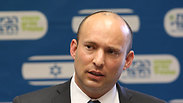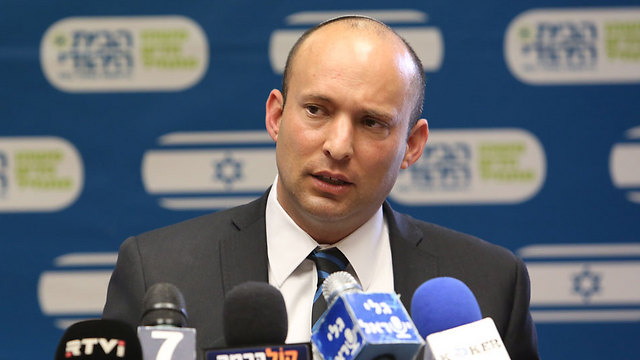
Helping the Cabinet see the bigger picture
Op-ed: Instating a military secretary in the Security Cabinet would aid its members in focusing on strategy, instead of minute detail
Regardless of his politics, Education Minister Naftali Bennett's request to help solidify the Security Cabinet's professional wherewithal by appointing a military secretary to advise the Cabinet is correct and justified. When I was head of the Operations Directorate, I was asked by the defense minister to present a certain operation before Prime Minister Benjamin Netanyahu. Though it was the defense minister who had the power to grant the final approval for the operation, since it happened to be a particularly delicate case, he had wanted the prime minister to be briefed on its details, as well.
Upon arriving at the Prime Minister's Office, I was stopped by the prime minister's military secretary, who flatly told me, "Approving this operation falls under the defense minister's jurisdiction. If he wants to share that responsibility, have him raise the matter before the Security Cabinet. The prime minister is not the next highest rank after the defense minister here—the Security Cabinet is." He was right; the Cabinet does constitute the most senior echelon in the country in all matters of state security.
The relationship between the Security Cabinet and the IDF can be compared to that of a company's board of directors and the company itself, with the IDF chief of staff serving as its CEO. And though the board of directors does have a chairperson—personified by the prime minister—the most important issues are still decided by the board, and not its chairperson.
Viewing the Security Cabinet in this way, however, is problematic for two reasons. The first has to do with the nature of Bennett's request. Cabinet members are usually senior ministers, some of them heads of their own party. These are very busy people, with most of them lacking the preferable security background. The members, however, are responsible for all the important decisions and are expected to learn and know the workings of the "company"—personified by the IDF—they oversee and whose actions they must approve. Appointing a military secretary to aid the Security Cabinet in these matters seems like a partial yet highly worthwhile solution to this.
The second problem with Bennett's suggestion has to do with nitpicking. Say, for instance, that the Security Cabinet convenes to decide on a major military operation. A regular sequence of events would then be this: After Intelligence gives an overly elaborate presentation, the prime minister turns to the defense minister and asks for their opinion. The defense minister then gives the floor to the IDF chief of staff, who proceeds to present his plan. Then the discussion portion commences.
This is usually where the ministers begin to pick at the IDF's plan. Their questions normally go into the most minute details of the operation, which are far from relevant to heads of state. It is not uncommon for the different members to childishly one-up military representatives or each other with their technical knowledge. The discussion draws on, unrelated to its level of detail or thoroughness. In fact, at this point the definition of "thoroughness" is flipped on its head, so that the tactical details come before any strategic plan set forth by the political echelon.
When talking about a company commander, being thorough indeed means examining the finer details, knowing the routes they are in charge of, making sure that all their soldiers' weapons are in good condition and so on. On the strategic level, though, going into such detail means the opposite of being thorough; moreover, dealing exclusively with the particulars of the IDF's plan leaves the Cabinet with only two options: approving the (only) plan presented, or rejecting it.
A minister once asked me who said this constitutes the entire scope of all the available options. I told him, "After the IDF finishes presenting its plan, someone will always ask what were the alternatives and why the IDF chose this option over others. It is crucial to then insist that the army open up the discussion on the issue, instead of diving into the one narrow area that has already been presented.
And so, regardless of what the state comptroller has to say on the Security Cabinet's conduct during Operation Protective Edge or his suggestions regarding expanding the government, there seems to be a need to improve the Cabinet's way of going about its duties. Bennett's suggestion regarding appointing a military secretary might be small, but it is an important and easily implemented step in the right direction.
Maj. Gen. (res.) Giora Eiland is a former head of the National Security Council.











